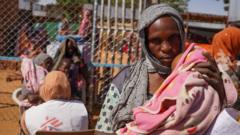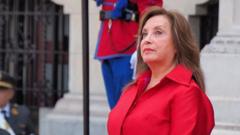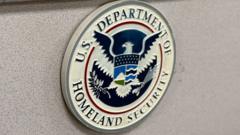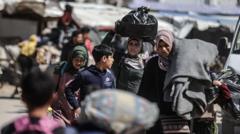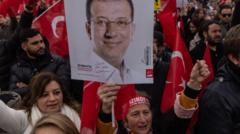The summary highlights disturbing allegations emerging from a United Nations inquiry regarding state violence against student-led protestors in Bangladesh, with the former prime minister's role under scrutiny.
UN Report Decries Bangladesh's Violence Against Student Protesters as Potential Crimes Against Humanity

UN Report Decries Bangladesh's Violence Against Student Protesters as Potential Crimes Against Humanity
In a revealing U.N. report, former Prime Minister Sheikh Hasina's crackdown on protestors is linked to possible crimes against humanity, with estimates of casualties reaching 1,400.
The brutal crackdown on student protesters in Bangladesh, led by former Prime Minister Sheikh Hasina, has come under intense scrutiny following a U.N. report revealing that as many as 1,400 individuals may have died due to the government's violent response to the protests, marking a significant increase from previous estimates. This turmoil, characterized by claims of extrajudicial killings, arbitrary arrests, and instances of torture, sparked severe criticism from the international body, which suggested the possibility of crimes against humanity.
"The testimonies and evidence we gathered paint a disturbing picture of rampant state violence and targeted killings that are amongst the most serious violations of human rights, and which may also constitute international crimes," Volker Türk, the U.N. human rights chief, stated. He emphasized that senior officials within Hasina's administration were aware of and complicit in the significant abuses, which included torture, abuse of minors, and sexual violence inflicted on women during these violent episodes.
Following the uprising, which eventually toppled her 15-year rule, Hasina sought refuge in India, amid rising tensions as the protesters encroached upon her residence. Prime Minister Narendra Modi's government has continued to grant her asylum, permitting her to influence ongoing political dynamics in Bangladesh, thereby complicating the interim government's attempts to restore democratic governance and stability.
The report shines a spotlight on the aftermath of the protests and the international community's concerns regarding potential accountability for the human rights violations committed during this turbulent period in Bangladesh’s history. As the situation develops, calls for justice and transparency regarding these grave accusations remain at the forefront, with many advocates urging for thorough investigations and international oversight.
"The testimonies and evidence we gathered paint a disturbing picture of rampant state violence and targeted killings that are amongst the most serious violations of human rights, and which may also constitute international crimes," Volker Türk, the U.N. human rights chief, stated. He emphasized that senior officials within Hasina's administration were aware of and complicit in the significant abuses, which included torture, abuse of minors, and sexual violence inflicted on women during these violent episodes.
Following the uprising, which eventually toppled her 15-year rule, Hasina sought refuge in India, amid rising tensions as the protesters encroached upon her residence. Prime Minister Narendra Modi's government has continued to grant her asylum, permitting her to influence ongoing political dynamics in Bangladesh, thereby complicating the interim government's attempts to restore democratic governance and stability.
The report shines a spotlight on the aftermath of the protests and the international community's concerns regarding potential accountability for the human rights violations committed during this turbulent period in Bangladesh’s history. As the situation develops, calls for justice and transparency regarding these grave accusations remain at the forefront, with many advocates urging for thorough investigations and international oversight.












